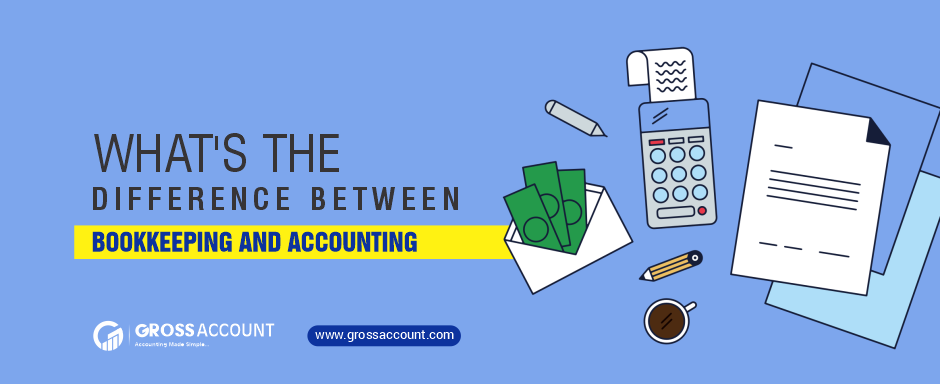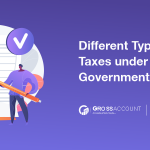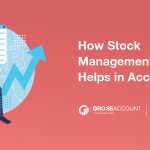When most individuals consider the contrast between bookkeeping and accounting, they find it difficult to distinguish between the two processes. While bookkeepers and accountants have similar aims, they assist your firm at various phases of the financial cycle.
Simply speaking, bookkeeping is concerned with recording financial transactions and is more transactional and administrative. Accounting is more subjective, providing insights into your company’s financial health based on accounting data.
Accounting and bookkeeping are two tasks that are critical for any company organization. In the most basic terms, bookkeeping is in charge of documenting financial transactions, whereas accounting is in charge of understanding, categorizing, analyzing, reporting, and summarising financial data.
To the uneducated eye, bookkeeping and accounting may appear to be the same job. Accounting and bookkeeping are similar in that they deal with financial data, need basic accounting knowledge, and classify and create reports based on financial transactions. At the same time, both of these procedures are fundamentally different and provide distinct advantages.
This tutorial will discuss the functional distinctions between accounting and bookkeeping and the duties of bookkeepers and accountants.
What is Bookkeeping?
A bookkeeper is someone who keeps precise records of a company’s financial data. The primary goal is to ensure that every entry is correct daily while preserving a history of all transactions in the books.
A bookkeeper can record and calculate revenue and costs, make bank transactions, create sales invoices, and raise purchase invoices.
Bookkeepers also ensure that a company’s accounts are balanced. Based on this information, they can explain critical financial information to business owners and make these reports make sense.
Bookkeepers are also responsible for supplying report forms, generating and updating daybooks, analytical reports, and debtor reports.
Read More : Top 10 benefits of bookkeeping management software
What is Accounting?
On the other hand, Accountants are primarily in charge of managing accounts and generating legally compliant financial statements and tax reports.
Accountants must be well-versed in financial regulations and ethical concerns, as part of their job is analyzing data and offering financial recommendations that might impact a company.
Accountants come in various flavors, with some working for public accounting companies and handling many enterprises, while others may specialize in just one. After the day, an accountant will reconcile the entries made by bookkeepers at the end of each fiscal period. They accomplish this by preparing, modifying journal entries, and creating records like profit and loss and balance sheet reports.
Accountants assist organizations in making educated decisions after analyzing the data.
Difference between bookkeeping and accounting
Bookkeeping Process
Bookkeeping is the practice of documenting daily transactions regularly, and it is an essential part of obtaining the financial information required to manage a successful business.
Bookkeeping entails the following tasks:
- Debits and credits must be posted.
- Keeping track of financial transactions
- Creating invoices
- Keeping track of and reconciling subsidiaries, historical accounts, and general ledgers
- Financial statement preparation (cash flow statement, balance sheet, and income statement)
- Payroll completion
One of the essential aspects of bookkeeping is keeping a general ledger. The public ledger is an entire document in which a bookkeeper records the money received from sales and expenses. This is known as posting. The more deals are done, the more often the ledger is posted. A ledger can be made using specialist software, a computer spreadsheet, or even a lined sheet of paper.
The complexity of an accounting system is frequently determined by the size of the business and the amount of transactions processed on a weekly, daily, and monthly basis. All sales and purchases performed by your company must be documented in the ledger, and certain transactions require accompanying documentation. On its website, the IRS specifies which business transactions need supporting documentation.
Accounting Process
Accounting is a high-level process that produces financial models using financial data gathered by a bookkeeper or business owner. Accounting is a much more subjective process than bookkeeping, which is primarily transactional.
Accounting is made up of the following components:
- Examining financial accounts for a firm
- Creating adjustment entries (recording costs that occurred but have not yet been documented in the bookkeeping procedure)
- Analyzing operational costs
- Assisting the business owner in comprehending the implications of financial decisions
- preparing income tax returns
Analyzing financial data to assist you in making company decisions is an essential component of the accounting process. As a consequence, you’ll have a more excellent grasp of your company’s true profitability and cash flow. Accounting transforms information from the general ledger into insights that reflect the larger picture of the business and the company’s success. Business owners frequently seek accountants for assistance with strategic tax planning, financial analysis, forecasting, and tax filing.
Bookkeeping Duties
- Bookkeeping policies and processes should be recommended, implemented, and monitored.
- Recommend, install, or administer accounting software for the creation of a single or double-entry accounting system.
- Create credit and debit accounts, as well as designate expenditure categories.
- Manage banking operations such as new deposits.
- Enter costs and revenue into the program and non-digital payment methods such as cash and cheques.
- Staff should be trained on utilizing suitable bookkeeping software (such as how to enter expenses).
- Check the correctness of the information and the balance of the accounts (if a Double Entry system).
- Verify that reported costs are following business policies, and handle approvals.
- Maintain records and back them up and archive them as needed.
- Ensure that your bookkeeping follows accounting best practices and regulatory laws.
- Assist the accountant with financial statement preparation (or prepare them himself, depending on the type of statements required).
- Disagreements should be highlighted.
Bookkeepers must keep the information they process secret since they will have access to sensitive financial information, such as payroll wages.
Accounting Duties
An accountant’s responsibilities are divided into four categories:
- Financial Analysis and Advice
It handles data analysis and accurate management advice.
- Data Management
Accountant supervises the storage, management, and updating of data. For example, a bookkeeper may propose software for a double-entry accounting system, but the accountant must approve it.
- Regulatory compliance
We are keeping abreast with government laws and ensuring that the firm adheres to industry standards.
- Financial Reports
The accountant can create regular business reports and statements as needed by businesses and the IRS.
Bookkeeper credentials
Bookkeepers are often not needed to have any academic schooling. Bookkeepers must be meticulous in their job and well-versed in essential financial concepts to be successful. Typically, the work of a bookkeeper is monitored by either an accountant or the small business owner whose books they are completing. As a result, a bookkeeper cannot call oneself an “accountant.”
Accountant credentials
A bachelor’s degree in accounting is usually required to qualify for the title of accountant. Finance degrees are sometimes regarded as a suitable replacement for people who do not have a particular degree in accounting.
Accountants, unlike bookkeepers, can get extra professional qualifications. For example, accountants with appropriate experience and education can earn the certification of Certified Public Accountant (CPA), which is one of the most popular forms of accounting designations. An accountant must pass the Uniform Certified Public Accountant test and have professional accounting experience to become a CPA.
The Changing Environments of Bookkeeping and Accounting
Accounting and bookkeeping have been around for a long duration, and both have witnessed significant changes in the way operations are carried out. This tendency will likely continue similarly in the future. Some of the anticipated developments in accounting and bookkeeping are as follows:
-
Bookkeeping Will Eventually Become Obsolete
While most businesses will continue to require the services of a bookkeeper to manage the books, bookkeeping will evolve into much more than data input, balancing bank ledgers, and reconciling bank statements. These functions will gradually dwindle and may become obsolete in the next few years since most of the activities would be performed by bookkeeping application.
-
Combining Bookkeeping and accounting functions
The difference between bookkeeping and accounting is gradually blurring. It’s worth noting that, with the development of accounting and bookkeeping software, some aspects of accounting are progressively absorbed into the bookkeeping process. Simultaneously, bookkeeping software may now generate financial statements, formerly a component of the accounting process.
-
Arrival of Smartphones
As smartphones and mobile devices become more intuitive and widely available, an increasing number of firms are transferring their activities online. Business owners want to be able to access data from anywhere globally on a variety of devices, and accounting and bookkeeping experts are ensuring that the duly-generated reports are always available online for their customers to view.
-
Services Expansion
Modern technologies have influenced bookkeepers and accountants to be more receptive to technology developments and investigate developing software choices. It is an opportunity for bookkeepers to assist their customers through this transition by providing value-added services like payroll processing, credit card reconciliation, and so on using cutting-edge software.
-
More efficient services
Because of advancements in analytical tools, consulting and advising firms are entirely using these new technologies and services, making bookkeeping and tax preparation services more efficient and substantially less expensive.
Can Bookkeepers Claim to be Accountants?
An accountant generally has a bachelor’s degree and appropriate job experience, although there is no official certification procedure for becoming an accountant. A bookkeeper might call himself an accountant, but it would be unwise to do so unless he had the necessary schooling or significant job experience in the different aspects of accounting (as listed above).
A bookkeeper cannot use the title CPA (Certified Public Accountant) unless he has earned the qualification. A CPA is obtained by meeting specific educational and professional criteria and passing a test. The requirements for becoming a CPA differ by state.
Are Accountants Involved in Bookkeeping?
Yes, and they do. Because some small businesses may not have an official bookkeeper, an accountant will take on the tasks of a bookkeeper as well. Alternatively, the bookkeeping tasks might be delegated to an accountant with less work experience.
Read more : why accounting software is important for your business.
Conclusion
Choose GrossAccount for Convenient Bookkeeping and Accounting Services. We think that bookkeeping and accounting are critical components of any business. GrossAccount has been in this industry for a long time and has serviced many clients worldwide. Our staff is made up of licensed, experienced accountants that offer the best services in the market.
Our bookkeepers and accountants are up to speed on changing market conditions and are trained to work with new tools and technology. You may save up to 50% on your expenditures by outsourcing your requirements to us, allowing you to focus on your core strengths.
If you’ve any bookkeeping or accounting needs, please contact us or speak with one of our staff, and we will respond within 24 hours.






